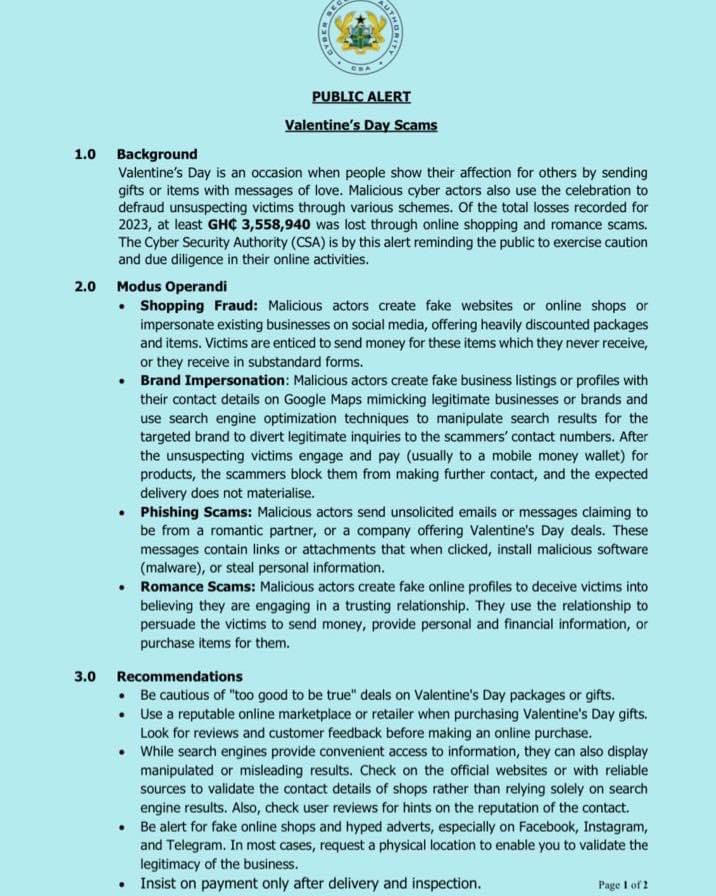
In today's digital age, the search for love often leads individuals to online platforms. While many genuine connections are made, there's a darker side: romance scams. These scams involve fraudsters creating fake profiles to exploit individuals emotionally and financially.
In a recent case, two Ghanaian women were deceived through an online romance scam and subsequently kidnapped in Nigeria. The Ghana Police Service, in collaboration with the National Signals Bureau and the Nigeria Police Force, successfully rescued the victims and apprehended eight suspects involved in the abduction. This incident underscores the growing threat of online romance scams in West Africa and highlights the importance of vigilance when engaging in digital relationships. In the UK alone, victims lost nearly £100 million to romance fraud in 2024. To protect yourself, it's essential to recognize the warning signs and take proactive measures.
1. Be Wary of Rapid Declarations of Love
Scammers often employ love bombing tactics, showering you with affection and compliments early in the relationship. They may quickly profess love or deep feelings to build trust and emotional dependency. This rapid progression is a red flag; genuine relationships typically develop over time.
ALSO READ: 5 Simple ways to spot a financial scam - Pay attention to number 5
2. Avoid Sharing Personal or Financial Information
Never share sensitive personal details, such as your address, date of birth, or financial information, with someone you've only met online. Scammers may use this information for identity theft or to manipulate you into sending money. Be especially cautious if someone requests money for emergencies, travel expenses, or medical bills.
3. Insist on Video Calls Before Deepening the Relationship
Fraudsters often avoid video calls or in-person meetings, citing various excuses. Insisting on a video call can help verify the person's identity and intentions. If they consistently avoid face-to-face interaction, it's a strong indicator that they may not be who they claim to be.
4. Conduct Reverse Image Searches
Scammers frequently use stolen or stock photos to create appealing profiles. Performing a reverse image search on their profile pictures can reveal if the images are associated with multiple identities or have been taken from other sources.
READ ALSO: How online romance scams led to kidnapping of 2 Ghanaian women in Nigeria - Full story
5. Consult Friends or Family About the Relationship
Discussing your online relationship with trusted friends or family members can provide valuable perspective. Scammers often attempt to isolate their victims, discouraging them from seeking outside opinions. If your loved ones express concerns or notice inconsistencies, take their observations seriously.
Notable Romance Scam Cases Involving Ghanaian Nationals
1. Mona Faiz Montrage (Hajia4Reall)
Mona Faiz Montrage, a Ghanaian socialite known as Hajia4Reall, was extradited to the U.S. from the United Kingdom after being charged for her role in a lucrative romance scam targeting elderly Americans. Prosecutors allege that from around 2013 through 2019, Montrage was part of a criminal enterprise in West Africa that committed fraud, including romance scams, against individuals and businesses in the United States.
2. Kofi Osei
In February 2021, Kofi Osei, a Ghanaian national residing in the U.S., was arrested on wire fraud and money laundering charges involving funds obtained from romance scam victims. Osei allegedly opened bank accounts using fake identity documents to receive fraudulently obtained funds from victims of romance scams, where perpetrators created fictitious online personas to develop romantic relationships and then leveraged those relationships to obtain money.
3. Banabas Ganidekam
In August 2022, Banabas Ganidekam, a Ghanaian national, was sentenced to three years of federal probation, including eight months of home detention with electronic monitoring, and ordered to pay $156,073 in restitution for wire fraud. Ganidekam admitted to receiving approximately $189,404 from at least 14 victims who were convinced to send money for various fraudulent reasons.
Protecting Yourself from Romance Scams
If you suspect you're being targeted by a romance scam:
Cease all communication with the individual immediately.
READ ALSO: 2 Ghanaians sentenced to U.S. prison for romance fraud, ordered to pay $581K each
Report the incident to local authorities or cybercrime units.
Inform your bank if you've shared financial information or sent money.
Remember, falling victim to a scam is not a reflection of your intelligence or worth. Scammers are manipulative and skilled at exploiting emotions. By staying vigilant and informed, you can protect yourself and others from these deceitful practices.
Read Full Story

























Facebook
Twitter
Pinterest
Instagram
Google+
YouTube
LinkedIn
RSS